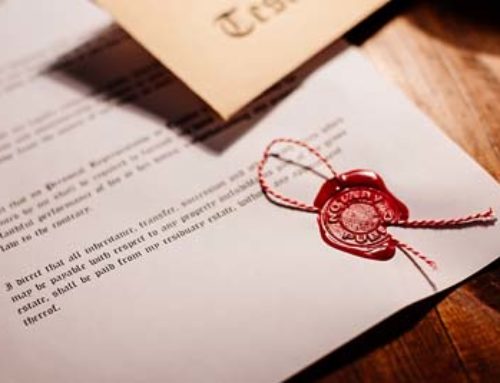 (Edited 15/04/2019 to include latest taxation changes)
(Edited 15/04/2019 to include latest taxation changes)
Fact 1
In Spain, mortis causa successions (to the estate of a deceased person) and inter vivos transactions (gifts between living persons) are taxable. The tax rate is the same although there are differences in the applicable bonuses and deductions.
Fact 2
From 1st January 2015, the regional regulations on Inheritance and Gift Tax, that were only applied if both the deceased and the beneficiary were residents in Spain, are also applicable to all residents in the EU or the European Economic Area (EEA). The Supreme Court, through several sentences issued during year 2018, has taken another step further as it has recognized the application of these regional regulations on the Inheritance and Donation Tax to any citizen regardless of whether they reside within or outside the EU or the EEA.
Fact 3
Applicable regulation from the 1st January 2015 (and based on subsequent judgments of the Supreme Court) for inheritances:
a) If the deceased was a resident in Spain: The heirs (whatever their residence is) are subject to the tax regulations applicable in the autonomous region in which the deceased was residing.
b) If the deceased was not resident in Spain: The values of all assets located within each region will be added up and the tax rules of the region where the assets have the highest combined value will apply. If there is no property in Spain, only those successors resident in Spain would be subject to taxation for personal obligation in their region (“comunidad autónoma”) of residence for the assets located outside Spain that they might inherit.
Fact 4
In Spain it is not the estate of the deceased which is taxed with inheritance tax but each and every one of the beneficiaries of the estate, according to their share in the estate and including the rebates and exemptions applicable to them based on their relationship with the deceased, their current residence, existing wealth in Spain, etc. The tax payers can benefit from a series of reductions depending on the degree of relationship with the deceased. The groups determining the reductions are as follows:
Group I: Natural and adopted children under 21 years of age.
Group II: Natural and adopted children of 21 years of age and older, spouses (including civil partnerships entered into the corresponding registry), parents, grandparents and grandchildren.
Reductions for groups I and II are 15,956.87 Euros per beneficiary, plus 3,990.72 Euros per year under the 21-year limit for each successor. The total reduction may not exceed 47,858.59 Euros.
Group III: Collateral relatives in the second and third degrees (brothers/sisters, nephews/nieces and uncles/aunts).
The reduction is 7,993.46 Euros per beneficiary.
Group IV: Collateral relatives in the fourth degree (cousins), more distant and rare degrees. Non-registered civil partnerships are included in this group.
This group does not have any right to reductions.
Taxable subjects with officially recognised disabilities will be entitled to an additional reduction.
Fact 5
A multiplying factor is applied to the tax base. It will vary depending on the value of the properties or assets that the successor already owns in Spain and the degree of relationship to the deceased.
Fact 6
In Andalusia the tax rate starts at 7.65% for the first 7,993.46 € and reaches a maximum of 36.50% for tax bases above 797.555,08 Euros. These figures correspond to the amount that each of the beneficiaries will receive, not the total value of the inherited goods.
A reduction of the tax base is applied in the acquisition of the habitual residence by the spouses, ascendants or descendants that lived with the deceased two years before the death. The percentage of the reduction goes from 100% when the real value of the percentage of the property received by each heir does not exceed € 123,000 up to 95% when said value is higher than € 242,000. It is necessary to keep the acquisition for three years from the time of death.
On the other hand, there is a reduction for spouses, ascendants and descendants when the value of the assets and rights acquired does not exceed 1,000,000 €, the taxpayers are included in groups of kinship I and II and their preexisting wealth in Spain is below 1,000,000 €. In these cases the taxable base will be zero.
To the value of the inherited goods must be added a 3%, that is the so-called “ajuar domestico” (household goods), which is the value attributed to the furniture and fixtures on the properties.
For taxpayers included in Groups I and II, that is children, parents, spouses, grandparents and grandchildren, will apply a 99% bonus on the final tax liability derived from inheritance.
Example: A couple owns a property in Andalusia, which is not their main home, valued at 800,000 € and the husband dies. In his testament he named heirs of his 50% in that property his wife and to his son in equal parts. Thus, each of them will inherit 200,000 €. As the tax base for each beneficiary is less than € 1,000,000, they will not have to pay inheritance tax.
In the same example, if the inherited assets were valued at € 3,090,000 (including 3% of ajuar doméstico), the amount that would receive each beneficiary would exceed € 1,000,000 and therefore would have to pay inheritance tax. The tax base in this case would be reduced to whatever exceeds € 1,000,000 for each beneficiary in group of kinship I and II. That would be € 545,000 for each of them. The tax bill would be € 127,080.71 but the final tax bill is reduced with the 99% bonus to € 1,270.80.
Fact 7
In Andalusia there is no automatic exemption in the Inheritance Tax between spouses. It is also convenient to mention that in Spain unmarried couples have no inheritance rights automatically recognized by law, as it happens with married couples, so in these cases it is essential to grant a will to appoint the partner as heir or legatee.
Fact 8
The acceptance and vesting of the assets and rights making up your estate will be officially registered before a notary and executed as a deed or document of public record. If real estate property is involved, the deed must be entered into the corresponding Land or Property Register and the tax on the increase in the value of land (also known as plusvalía) must be paid. This process obviously entails additional expenses (lawyer’s fees, notary and registrar’s fees, cost of processing the deed, etc.).
Fact 9
If there is Inheritance Tax to pay, it must be settled within six months from the date of death. An extension for another six months can be granted upon request of the taxpayer. The application for the extension has to be made within five months as to the date of death and it will have to be approved by the relevant Tax Department. If the extension is granted, default interest shall accrue.
Fact 10
Double taxation: Generally speaking in the cases where there is no bilateral agreement, the amounts paid in the foreign country can be unilaterally deducted back in your country of residence up to, as maximum, the amount you would pay for that good or right in such country, or up to the amount actually paid abroad if lower.
Fact 11
If within a maximum period of ten years the same goods were the subject of two or more transmissions “mortis causa” in favor of descendants, the tax paid will be deducted from the tax base, in addition, in the second and subsequent transmissions. Subrogation of property shall be allowed where it is established conclusively.
Fact 12
Payment of Inheritance Tax cannot be requested by the Tax Office after 4 years, 6 months and a day from death, unless there has been an action by the Tax Administration to interrupt that period.
Luis M. Vicente Burgos
VICENTE & OTAOLAURRUCHI ABOGADOS






